Dennis Loy Johnson and Valerie Merians
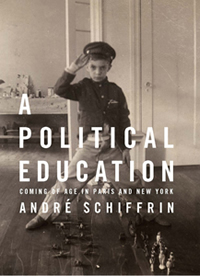
When I spoke with Dennis Loy Johnson and Valerie Merians of Melville House Press at their Hoboken office on the “Left Bank” as they fondly called it, in 2007, they had just won the Mariam Bass Award for creativity in independent publishing. They had also just published Tao Lin's double feature, a book of short stories and a novel, Eeeee Eee Eeee and Bed. And their headquarters was still located in a labyrinthine warehouse which also housed practice space for the band Yo La Tengo. Last winter, Melville House moved operations across the river to Dumbo, Brooklyn, where they are in good company, only blocks from previous Mariam Bass winners Akashic Press and in the building that houses Verso Press. The new office now features a bookstore, gallery, and performance space, where they recently held a party to celebrate Lin's new book of poetry, Cognitive-Behavioral Therapy.
Johnson and Merians spoke with me at length about the challenges of independent publishing, their fondness for French literature, and how they hope to revive an older, more sustainable model of publishing where authors perceive publishers as collaborators rather than enemies. Johnson and Merians are unlikely publishers--he is a literary journalist and she an artist and poet; neither had anticipated entering the book business before founding Melville House. Fueled by a passion for literature and steered by their keen taste, their recent successes reflect their vision and hard work and illustrate how backing books you believe in is still relevant and, to quote Merians, “a lot more fun.”
KGB: You said that when you published What We Do Now, a collection of essays by literary voices and cultural figures on ways to respond to Bush's 2004 reelection, it made you realize that there is a place and a need for independent publishing. I'm wondering if that's one of the reasons why you founded Melville House, which grew out of your blog, Moby Lives. Is publishing something that you had wanted to become involved in from the beginning?

DLJ: It was all her idea.
VM: Hardly. We had never anticipated being publishers, it was the furthest thing from my mind. Well, not the furthest, but a very far thing from my mind. We were definitely driven by the sense of disconnect the media had to what we felt was going on [after the 2004 presidential election], and we wanted to be able to get other voices out there that were not being heard.
DLJ: It did grow out of Moby Lives. Reportedly the first book blog: it wasn't really a blog it was more like a news digest. It was kind of a live performance—a typing performance I did every morning. On Monday, September 10, 2001, Yahoo! had announced that Moby Lives was the site of the week. All of a sudden, I was famous. So on September 11, I was typing with the biggest audience I had in my life.

We went through that horrific morning as witnesses, running down to the water, et cetera. The communication towers went down with the World Trade so we couldn't get any radio. And then we started getting a television feed from CBS over the radio, because they had a tower on the Empire State Building. It was all very frustrating.
When we went online and I had all of these emails waiting—people were writing to Moby. Some of them were witnesses—there's a poet I knew, George Murray, a great poet, who worked in 7 World Trade, the building next door. He wrote a letter about his escape, and I put it up on Moby. A plane tire had blocked them in the building and they had to knock that out to get out and there were bodies falling. It was just a horrific story. Playwright Mike Daisy wrote to me about his experience trying to get over the Brooklyn bridge with all these dazed people. Novelist Lindy Oblonsky wrote about staggering around Greenwich Village in the aftermath. The poet Eliot Katz sent me a great poem about watching it happen from Queens. And I started putting all this stuff up. This went on for days and weeks—and meanwhile the media was covering the President coming down and saying, "We're going to kick some ass."
And we were just feeling that the stuff that was being published in the newspaper was not what we were feeling was going on here. People weren't walking around New York saying, "We've got to go kill somebody. We've got to go attack somebody." They were walking around saying, "What the hell just happened and why did it happen?" And so at some point, Valerie was looking at what I was posting on Moby and she said, "That's a book. We ought to just make a book and tell people."
We had no intention of starting a publishing company, we just wanted to make a book. And we didn't know what we'd do—we thought we'd go down to KGB Bar, maybe, and pass it out. David Lehman and Star Black, who ran the first reading series at the KGB Bar, were good friends of ours, so we thought, "We don't know, we'll do something with them, we'll figure it out. We'll put it in the back of the car and go." Because that was our experience. We both went to the Iowa Writer's Workshop and our experience wasn't anything more than that—people made chapbooks, people made little books.
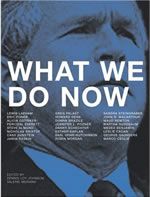
VM: It was an art project kind of idea.
KGB: I read that in the beginning you planned on doing six books a year, and it seems that number has already expanded. Have you expanded because you are approached with more ideas, or is it because you have the capability to do more?
VM: As we were going along, we were learning more and more about the book publishing business, and how you can do it and make it work. Our capabilities were growing and our interests kept expanding. We felt like we had this amazing staff—they're all completely brilliant and we're very thankful to have them. We feel like we can really do some exciting stuff here and really contribute to the culture in a concrete way. And one of the things we've been very interested in, throughout the short history of the company, is publishing European and foreign work.
DLJ: As foreign as possible.
VM: As foreign as possible. I mean, America is just so terribly insular, and aside from our love of world literature, we feel that it's so refreshing to be exposed to the literature of other cultures and countries. So that has us very energized right now. We keep broadening our horizons and seeing more things that interest us. We have grown as a company. It used to be just Dennis and I on the kitchen table there, slaving away. We've certainly grown, and we want to try to fulfill our potential, as it were.
DLJ: The company is also being shaped by the staff that Valerie mentioned. I know it's a cliché to say that it's a team, but it really is. Nobody here has a very clearly-defined job. Everybody does a little of this and a little of that. It's like a rock band and we're all playing the song together.
We did this book about the impeachment of the president, and that turned into a colossal team effort. We are always jamming on how to promote a book and how to get a book out there because we know there's an appetite. For that book, I came up with the idea, and then Kelly thought of who could write it, and Becky had an idea about promoting it, and on it went. We wound up doing all these crazy projects with it. Valerie thought of making a documentary film. And then Kelly said, "Let's do a house party web site."
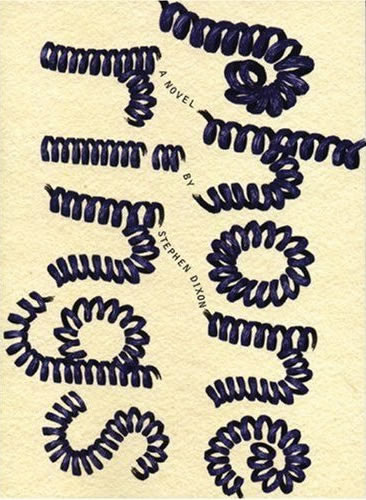
From there it just kind of exploded. I think that's why we just won this award—it's probably that book. The American Association of Publishers just voted us the indie publisher of the year. It's called the Miriam Bass Award for Creativity in Independent Publishing. And I think it was because of stuff like that—coming up with wild ideas. But we couldn't have done that by ourselves. The staff here, we really fire each other up, and it's pretty cool.
KGB: That is really cool. Do you plan on keeping the staff small so you can continue working in the same way?
DLJ: There's a certain size, I think, you need to be. One reason we do the number of books we do is to support a staff of a certain size. For a couple of years, Melville House was Valerie and Dennis doing everything: acquiring titles, editing titles, proofing titles—everything except laying them out. And at the end of two years, we were pretty whipped. I mean, not in good health, and really, pretty tired. So there's a certain number of people you need to have the kind of company we want to have—you need a production person, a publicity person, a rights person. But we tried to find people who could also be editors and feel that if they had an idea, we could make it happen. So, there's one or two more areas that we need to cover but economics are going to force us to keep it small. And our tastes are going to force us to keep it small, because we do want it to be like an art project and not like a business project.
VM: I want to be interested in the books we publish—always. I don't want to just be churning them out. To me there's no sense in doing that at all.
KGB: It seems that your interests and passions are reflected in what you choose to publish. One thing I've noticed is your affinity for world literature, especially French literature. Is there anything more behind that?
VM: Just really our love of French literature. It occurred to us on our honeymoon in Paris that there wasn't much French literature, or even just French pop fiction, making its way over to the United States. Dennis likes to say that the last thing people know about is Camus.
DLJ: That and the heavy-duty critical stuff from college. But as far as general interests, France was famous in the '50s and '60s for producing all this intelligent fiction that was not to the level of Derrida obscurity, but was readable by just the average lover of literature. And that seemed to kind of stop. The only thing that's happened since then is Houellebecq.
VM: [laughs] That's the most recent phenomenon. And so we thought it was definitely something we wanted to explore. They have their equivalent of the National Book Awards—the Goncourt—and we were just shocked that those books didn't automatically get published in the United States. So, we started poking around and thought, "Well, there's some great stuff here, we really want to explore this." And we've found some good writers and are finding more, not only in French literature but also in German. We've got some very cool German books coming out.
DLJ: German, Italian, Hungarianâ€Â_
VM: We have an Israeli novel that's due in the fall. We're enjoying the whole international part immensely. There's really a great, great pleasure in this.
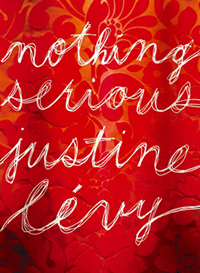
DLJ: It's in terms of both fiction and nonfiction. The reporting in this millennium, the superior news reporting, is coming out of Europe—with notable exceptions. The book we just published is a good example: It took an Italian reporter to uncover the lies that the Bush administration was using to start the war. That was the Watergate story of this decade. One of the very first books we did, Who Killed Daniel Pearl? was written by a Frenchman. And that book reported on the nuclear arms trade going on between our ally Pakistan and Iran and North Korea. We put that book out a year before those stories appeared on the front page of the New York Times and The Washington Post. The kind of reporting coming out of Europe was way ahead, and much more honest and out there than American reporting of the time.
And with fiction, too. I just think it's a very dull moment in American fiction, and there is much more exciting stuff going on in Europe—particularly in Germany and Italy, but to some extent in France as well. Here in America, we're having fraudulent stuff like Jonathan Safran Foer and Jonathan Franzen— just ridiculous, shallow stuff. We were much more intrigued by what was going on in Europe, and very proud of some of the fiction we've discovered, such as Benoît Duteurte's book called, The Little Girl and The Cigarette. It's great novel and is doing really well here. And a writer named Kevin Vennemann from Germany who we're going to be breaking out this winter.
We also have some American discoveries we like. Our lead fiction writer is Stephen Dixon, who is still, I think, the country's leading avant-gardist, and Tao Lin. We are really thrilled about him. This is one of the most exciting books we've ever published. We're looking to find some new sensibilities in fiction writing and in current events writing, and for the most part, Europe has been leading the way for the past several years.
KGB: Do you think that American fiction is dull, in large part, because of what the large publishing houses choose to publish? Or does the problem have more to do with the writers in general?
DLJ: Certainly, those are major factors. I think another factor is just our education and mainstream media. They have just pounded us down into dumbitude. The mainstream book industry has been taken over by the same mentality that runs Hollywood, and they like young and they like pretty and not too difficult. It seems really perverse in such a treacherous time—we've got an unelected government and we're in a murderous, ridiculous war—that kind of literature just seems silly to me. I'm much more interested in people who are honestly connecting with the world and writing about it, instead of trying to write entertaining stuff or stuff that's so self-involved. I don't understand the purpose of it. The kind of memoir-orientation that's driving fiction today is not my cup of tea.

KGB: How did you find Tao Lin?
DLJ: He found me. He was a fan of Moby Lives, and we started corresponding. He's really quite unique. The first time I read [his work], I thought, I've genuinely never read anything like this. And he's very young. And he's incredibly conscious of what he's doing. He has an awareness and a concern for craft that strangely enough, in the age of the MFA program, is really rare. He's really got a shockingly intense understanding of where he's writing from.
I think that in a lot of the writing that's being fostered by the big houses, people are forced to pose. I think there's an understanding amongst contemporary writers that we're in treacherous times and this is what they should be writing about, but they don't know how. For one thing, they're ill-read, so they don't really have any field of reference. They haven't read For Whom the Bell Tolls or The Sun Also Rises, shockingly. They should have, but a lot of them haven't. They haven't read Orwell, or even Dostoevsky and stuff like that where they're really connected to the moment and writing from the moment. But they know it exists and they're trying to kind of do it. And so what happens is you have writers like Nicole Krauss who, in her last book, felt she had to make reference to Isaac Babel, and her reference actually is mistaken so that she has him alive at a time when he was most likely dead—which she would have known if she had so much as read the introduction to a collection of Babel's writing. But she felt pressure to be a hot, young intellectual instead of really writing from her experience in society. And I don't mean to single her out because this is a time of mistaken assumptions. Why does Jonathan Safran Foer feel he has to write about 9/11 in a way that has a happy ending? That's insane. That's writing to a goal, as opposed to writing to expose the moment.
VM: There really is all that pressure to be avant-garde among kids in writers' workshops because that's how they understand writing: that they're making something new. But this genuinely is new, or unknown, and I don't think it comes from an outside pressure to feel like you're making something up. It's a whole cloth.
KGB: How do you find most of your books?
DLJ: We're constantly looking. We keep our ears open.
VM: And we genuinely read the slush pile, and we've published out of the slush pile. We take it very seriously.
DLJ: The next piece of fiction we're publishing came from the slush pile.
VM: I also think word has gotten out to foreign publishers that we're publishing—we're getting a lot of foreign projects pitched to us.
DLJ: We do get a lot of French stuff. I mean, we've published the editor of their leading newspaper, Jean Mari Colombani from Le Monde. We've published Derrida, we've published Debray, we've published Benoît Duteurte. So we get a lot of attention in France. We are the king and queen of France.
VM: Paris is no longer a vacation. Paris is now work.
DLJ: It's true. We stay at these little hole-in-the-wall hotels when we go to Paris, and we still come down to the desk and someone's dropped off a manuscript. It's amazing.
KGB: Do you see yourself as artists first and publishers second? How would you define yourself?
DLJ: We're publishers—we're just a different kind of publisher. Actually, I think we're more of a traditional kind of publisher. Most people in the book industry are great people—lovers of literature, intelligent, kindhearted people—but the business really changed twenty or thirty years ago. Maybe the turning point was when RCA bought Random House. When the bottom line is what counts, when you have to report to your shareholders every quarter, when you have to show an increased profit every quarter—this is not a good way for art to meet commerce. That's when art starts taking a second seat. When those big companies started out—when Bennett Cerf started Random House, the guys named Simon and Schuster started Simon & Schuster—they had totally different priorities. Yes, they wanted to make a profit, but they didn't come at it with this kind of weirdo American capitalism that's so dominant now.
VM: They knew they had to make interesting books—that was their largest priority. First you had to make an interesting book to attract a buyer. It wasn't like the dictates of the market, or of your shareholders, were first and foremost. It's not that kind of industry. It can have a small profit every year, and that's fine—that's how it survived for years and years. But now there's another capitalist model that's been imposed upon it, and it's not surviving the model—they're killing the thing itself. They're killing bigger publishing.
DLJ: If you look back at the memoirs of Bennett Cerf, he discusses a different model. And his model was this: If I publish William Faulkner, I'm not going to make a lot of money. William Faulkner's an avant-garde writer. Some people would define his writing as difficult to read, but important to read and rewarding to read. I'm going to publish him, but I'm going to lose money on him so I will also publish a joke book that I can sell 100,000 of, and this will support my ability to publish serious literature and serious political writing, and poetry, and things like that.
That model has been thrown out. This is not a theory, this is not my analysis—this was their stated model. You had to do a mix to support the literary stuff. Now that model has been replaced. Stated as dictum by people like Alberto Vitale, the money man at Random House during the '80s and '90s, the new model is that every single book has to make profit. Every one. If you're publishing William Faulkner and he's losing money, you stop publishing William Faulkner.
We certainly do follow a completely different model than the conglomerates. We're really kind of old-fashioned. People think we're radical or underground, but in a way we're just doing what publishers did for hundreds of years, for the entire history of publishing. Samuel Johnson, when he published the dictionary, lived around the corner from his printer/publisher. They worked together very closely—they were friends, they were pals, they were business partners. That model has been extant. So that's what we're going back to.
KGB: You've previously stated that publishing is a labor of love. I was wondering, since you are married, how that makes the publishing house stronger. And would producing a book in three weeks be possible if you weren't married?
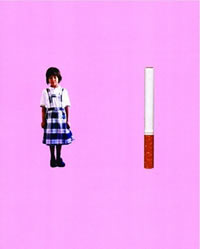
DLJ: I don't think we could have done it—I couldn't have done this without Valerie. It is a joint art project to me.
VM: I don't imagine it would be something I would have wanted to do without Dennis because it's been so consuming. There's no way to have something this consuming in your life and not share it with your partner and still have a partner. There would just be no room in your life for something else.
DLJ: You know, when Valerie sits up in bed in the middle of the night, I know why. And I understand why. She doesn't even have to say anything. If I wasn't co-publishing with her, she could never explain this to me—the thousand and one things involved with making a book. It's incomprehensible. Most writers don't have a clue about what's going on in publishing, not politically and not in a daily reality. They have no idea the work that a publisher does for them, that an indie publisher does for them. When you get down to it, the publisher is at the bottom of the food chain. The retailer gets the biggest cut of a book, the next biggest cut goes to the distributor, the next biggest cut goes to the writer, and what's left goes to the publisher. And it's something like, a retailer usually gets 50% of a cover price, the distributor gets half of what's left of that, and all the remaining money then goes to the publisher to pay the writers, to pay the printers, the publicity, the promotion, the shipping—you name it. At the end of the day, the publisher gets the lowest cut.
At the same time, the only person with an actual financial statement is the publisher. Valerie and I put the money out for these books—we're the only ones who actually stand to lose cash. If the retailer doesn't sell our book, they can return it for a full refund. Forever. Ten years from now, Barnes and Noble can send this book back and we have to give them the money back for it. If the distributor doesn't distribute our book, we still have to pay them for storing our book and handling the book. If the book doesn't sell but we ship 100 copies, we have to pay the writer. We hold a reserve against returns, but we have to pay them something: those are called sales. Just shipping a book to a bookstore is considered sales, and we have to pay out. Not to say that the writer hasn't made an investment, but they haven't put any cash in it. And if the book bombs, they aren't going to lose cash as a result. But we are. That's a significant thing. Everything we own is in this company, so if it doesn't work, we are quite literally destitute. So we are literally putting our money where our mouth is, and so everything we do we have to really believe in, we have to get behind.
KGB: Do you deal with agents at all?

DLJ: No, not very regularly. Occasionally, but the pie just isn't big enough.
VM: We've had agents mess up deals that both we and the author wanted to happen. We try to work with them sparingly. Although there are some agents out there who seem to understand the pressures. And I imagine you would need an agent. But at the same time, those writers who are not, should we say, fodder for the big houses are still operating on the model that they need an agent, which is really not the case.
DLJ: It's no criticism of them, though. They are what they are.They have businesses and they need to make money, and they need to survive. But there are two publishing models, and in this model, the agent is another person with needs that don't benefit their client. And they can't admit that. If you need an agent to deal with Melville House, then Valerie and I are not doing our job.
We have had many instances of writers, even well-known writers, bringing us a book project that no other publisher would do because it's small or different or weird or out of their norm. And we're happy to do it and excited to do it, and an agent will step in and say, "If you can't give us an advance, you're not getting that book." And we won't get that book and so that book is never ever made.
VM: They've actually just finished off books in their entirety. Not like it will be sold to somebody else, but it just won't exist.
DLJ: This is what happened to Stephen Dixon. He fired his agent to come to us. That's the state of the art at the moment. Agents are the most fascinating turf in publishing right now. They really are defining the differences between independent publishing and conglomerate publishing in a more definitive way than the Hudson River is. It's really the battle ground, and how that all shakes down in the future
Another aspect is thinking about writers: most writers hate their publisher and love their agent. The day may come when they regret that. If a big publisher drops them and they have to go to an indie, it takes some understanding and a leap to be prepared and to navigate that journey.
There's an innate distrust of publishers, and that's because for the last twenty years the big houses have behaved despicably. There was an instance in 1995, or some time in the first half of the nineties, when HarperCollins—in one fell swoop—dropped 100 writers. One hundred so-called mid-list writers. It was big news at the time because there were some very big names on that list. And they were just dropped because their books weren't selling so well—it's not that they weren't making a profit, but that they weren't making enough of a profit. Shit like that should make you distrust the big publishers. There should have been a revolt. People in those publishing houses should have revolted the way André Schiffrin revolted when stuff like that started going on within the Random House empire. But his reaction was a rare one. So I understand the distrust. But if you think about independent publishing as a kind of mom-and-pop business, and start seeing yourself as a partner in that, it's a much more traditional model for publishing and it's not too hard to comprehend.
VM: And it's a lot more fun.
DLJ: It's a lot more fun to be more involved with your book. Once I asked Stephen Dixon how this is working out for him, how he thought about working with Melville House. He said he loved it because it was the first time in his career that he's been able to get the publisher on the phone.
*****
KGB: Is there anything else that I've missed?
DLJ: You should tell people to send money.
KGB: How do you prefer that?
DLJ: Small bills.
VM: To buy Melville House books.
DLJ: If they can't send money, buy Melville House books, at an indie bookstore, or at a KGB Bar event.
DLJ: By the way, I love Morgan Entrekin. And his hair. I am jealous of his hair.